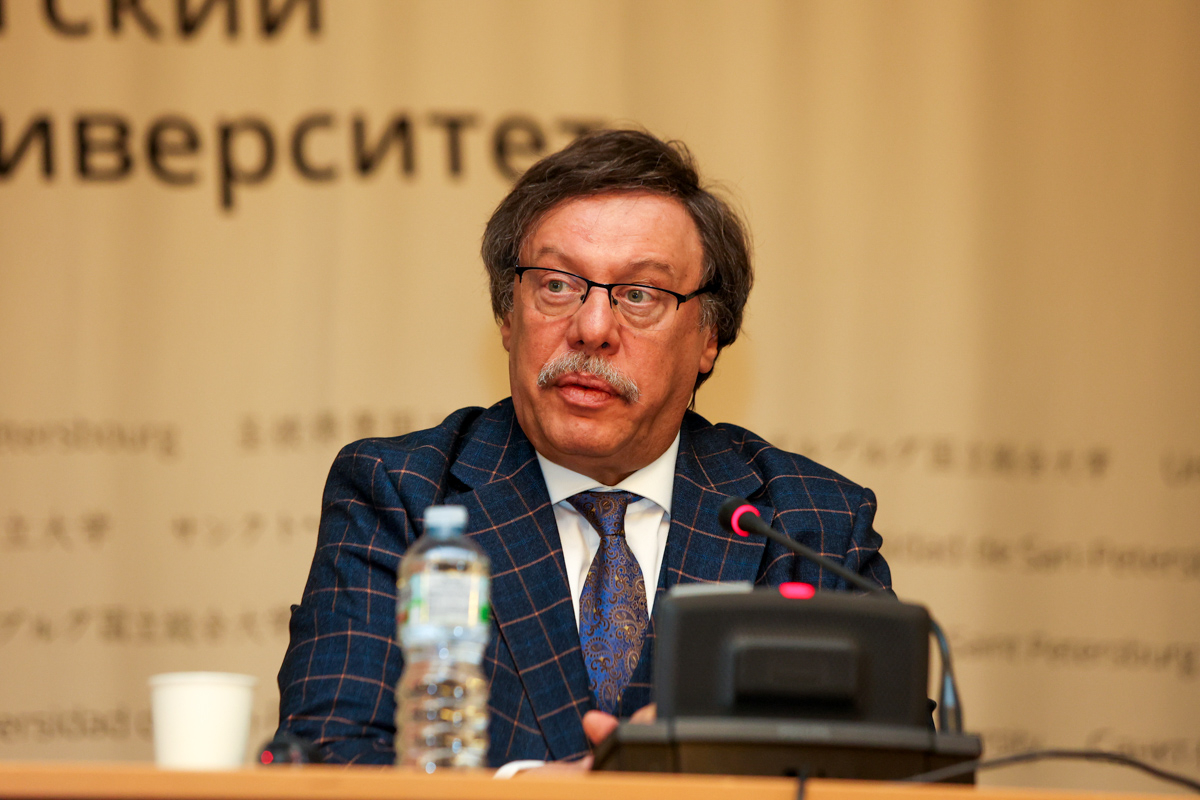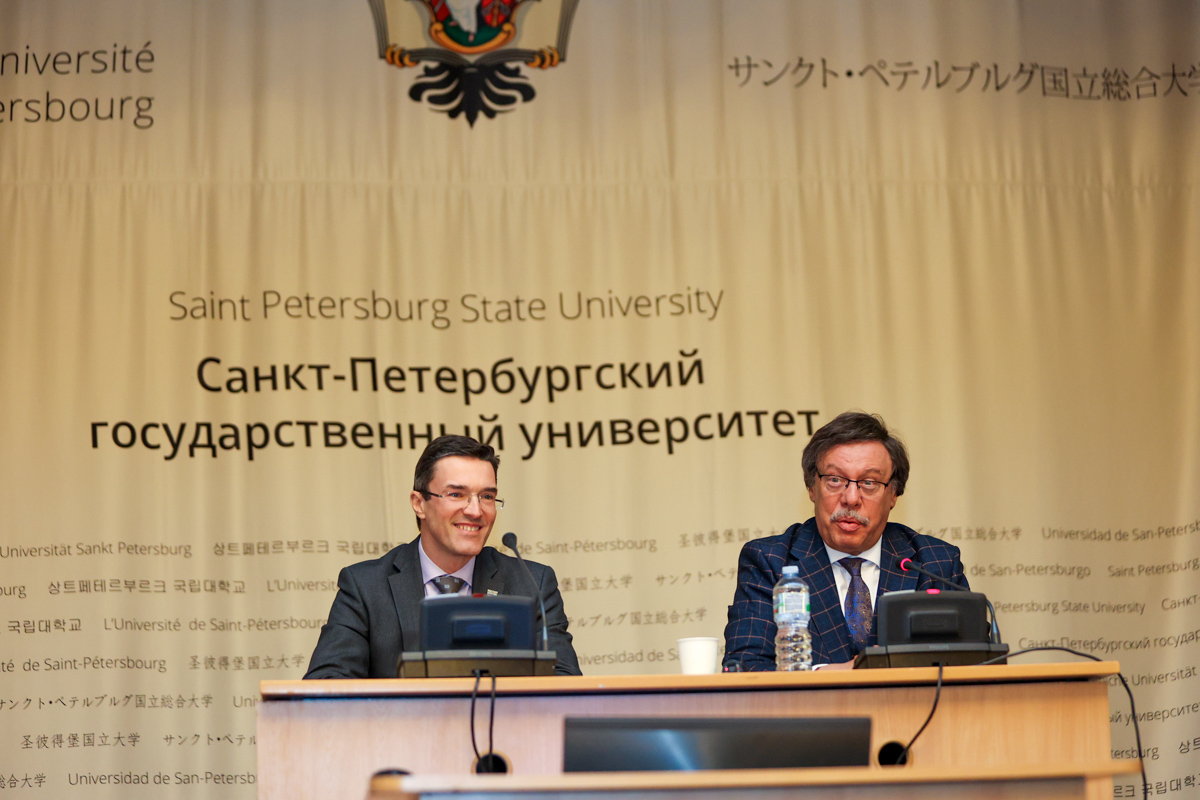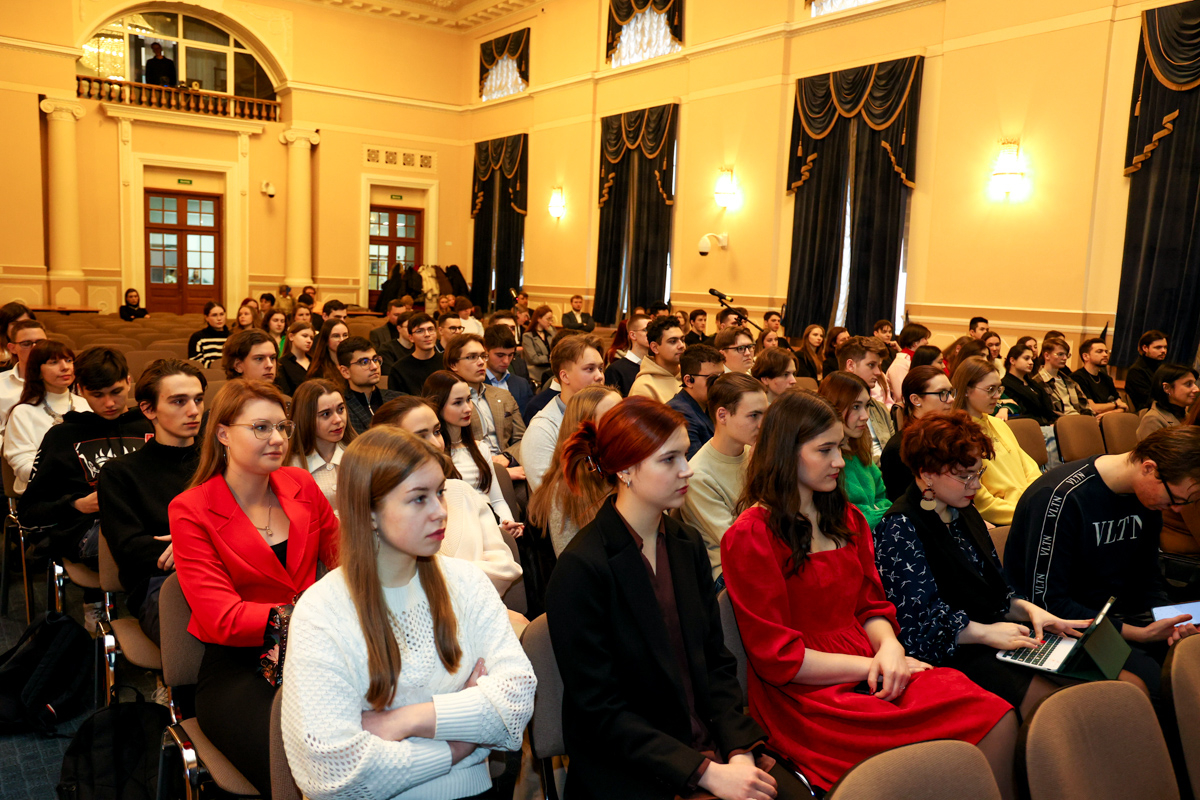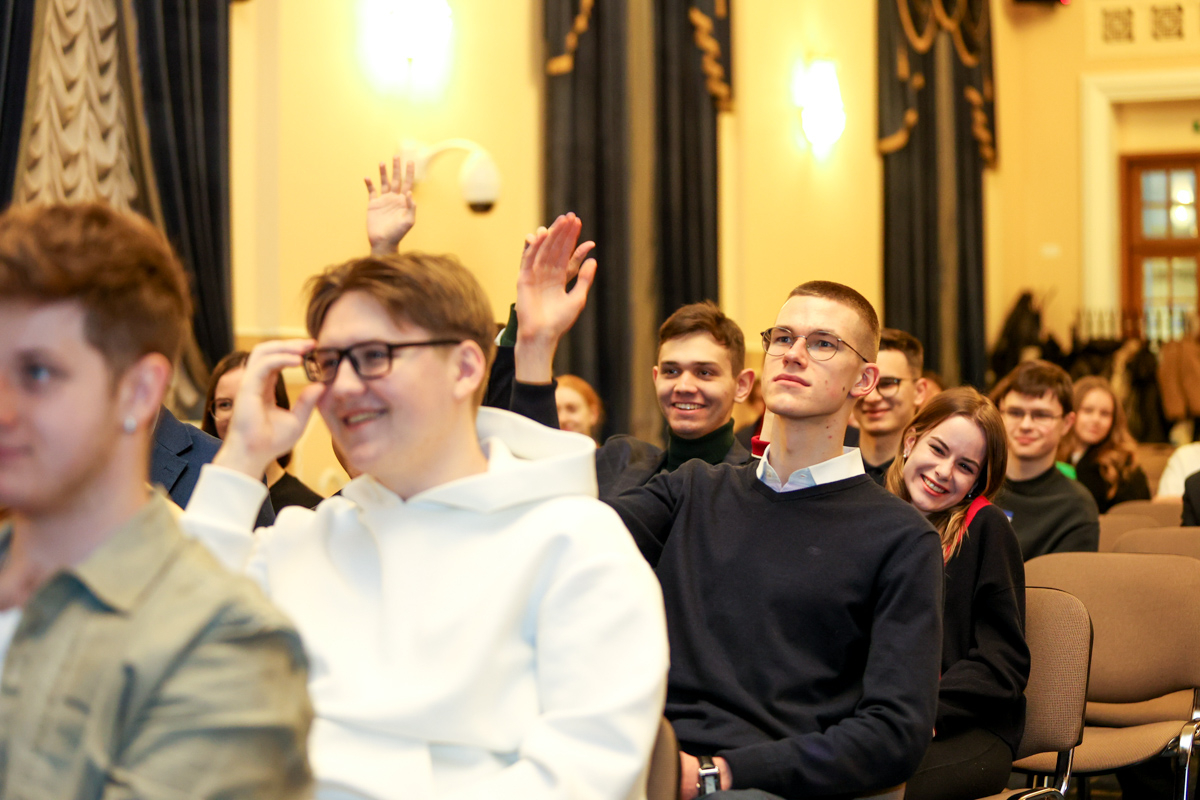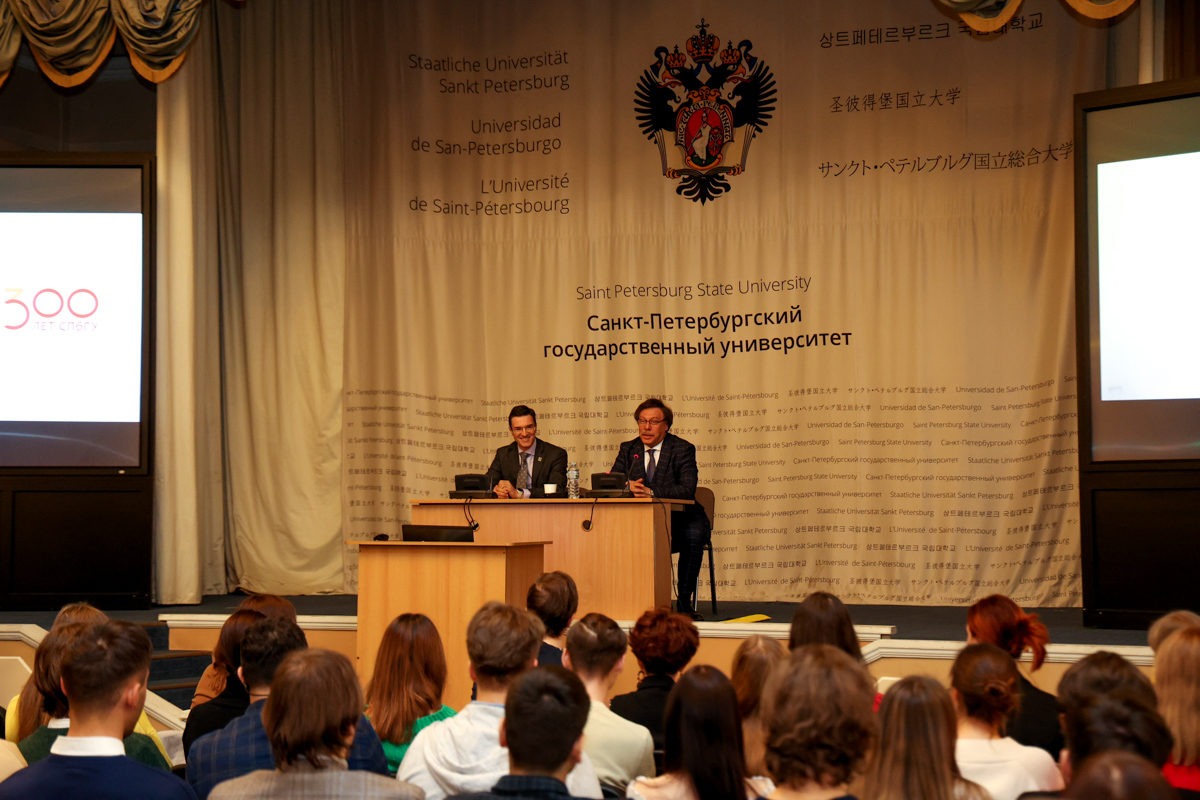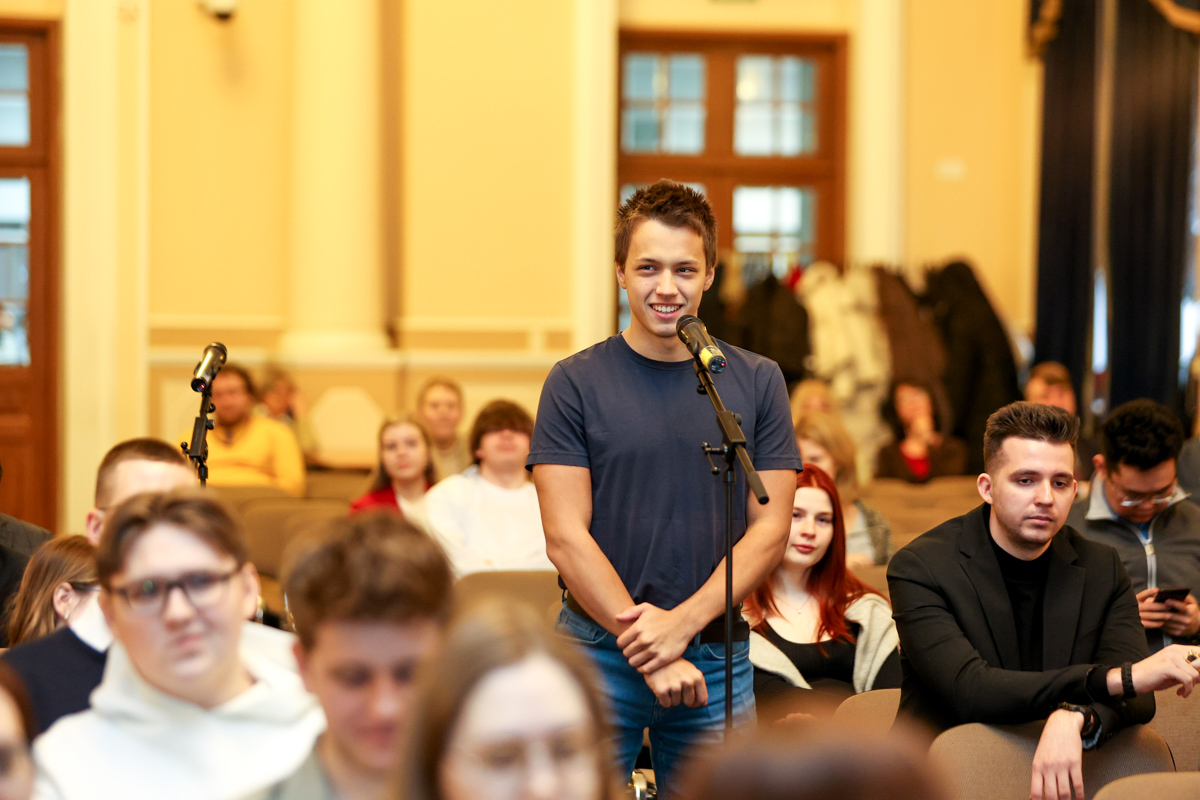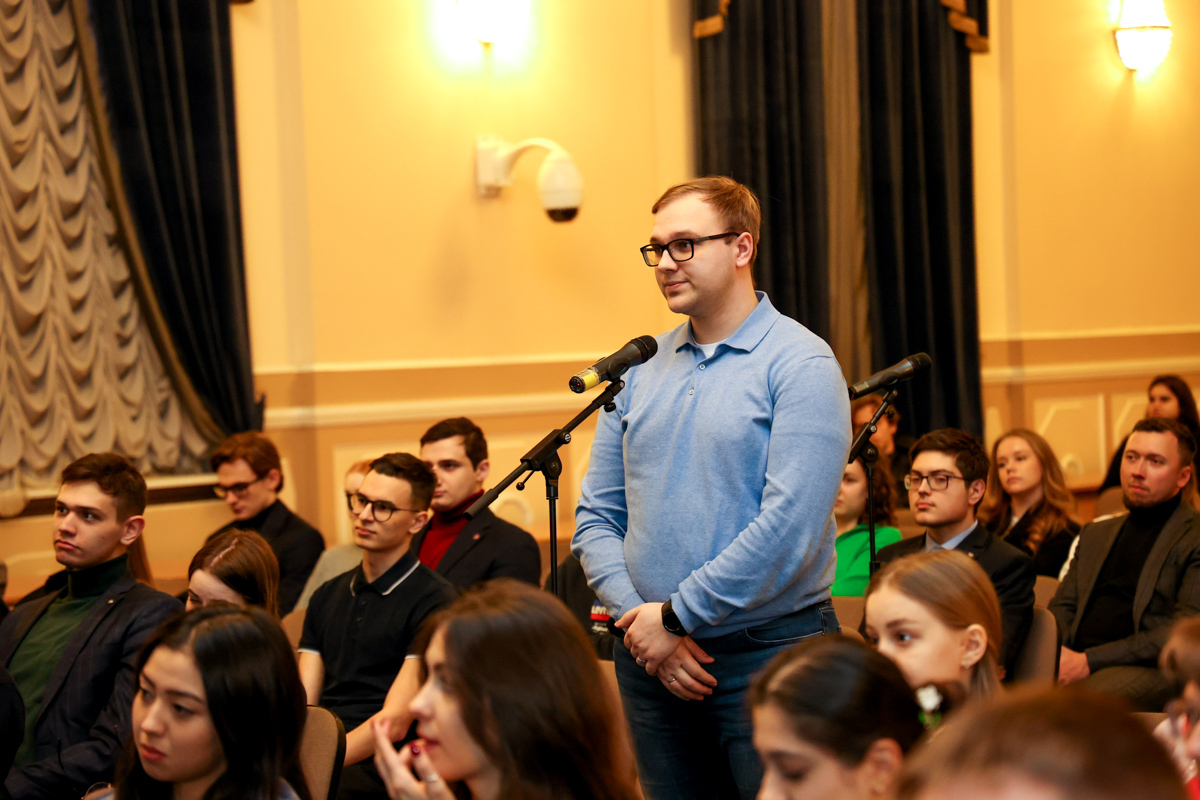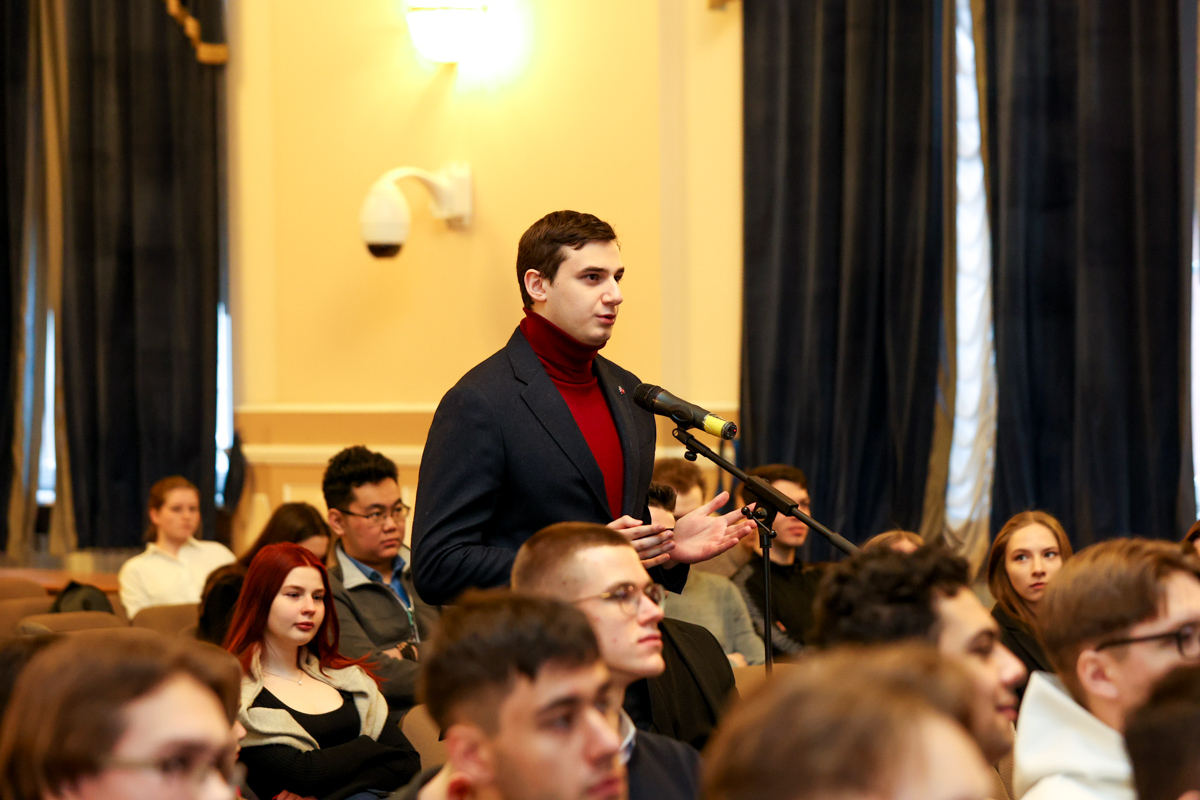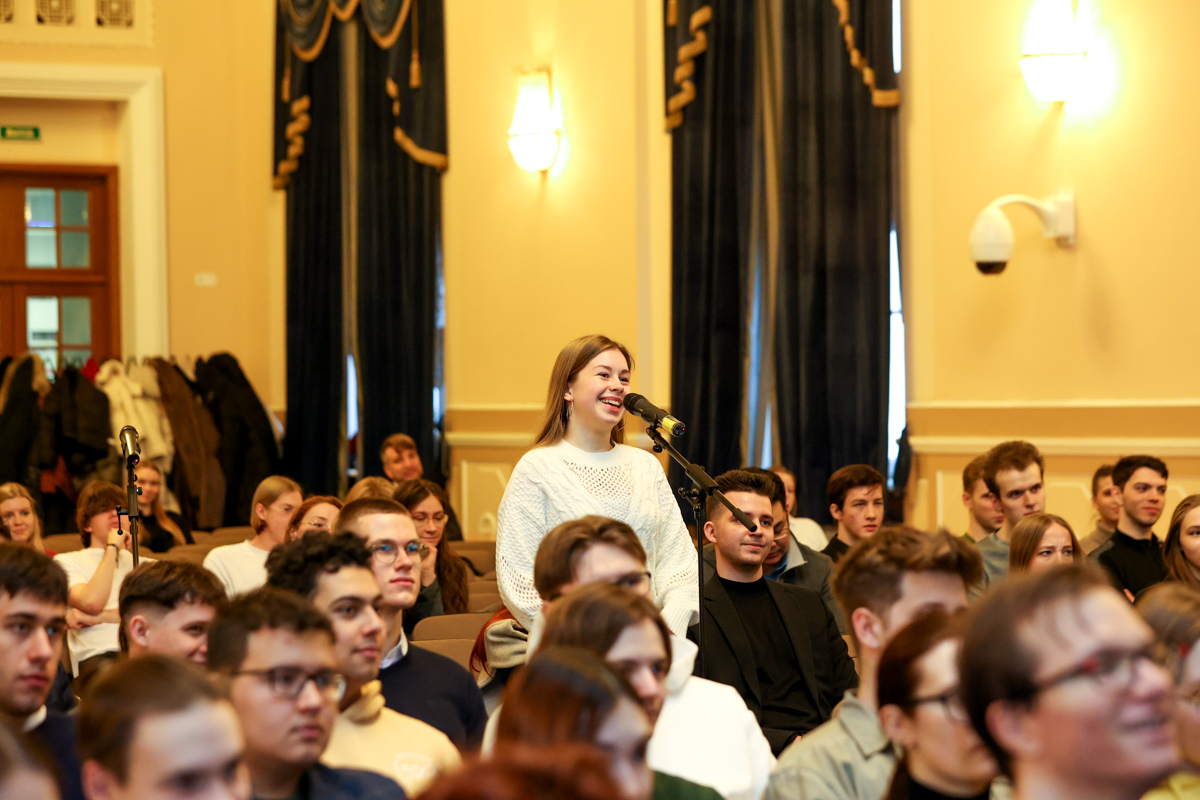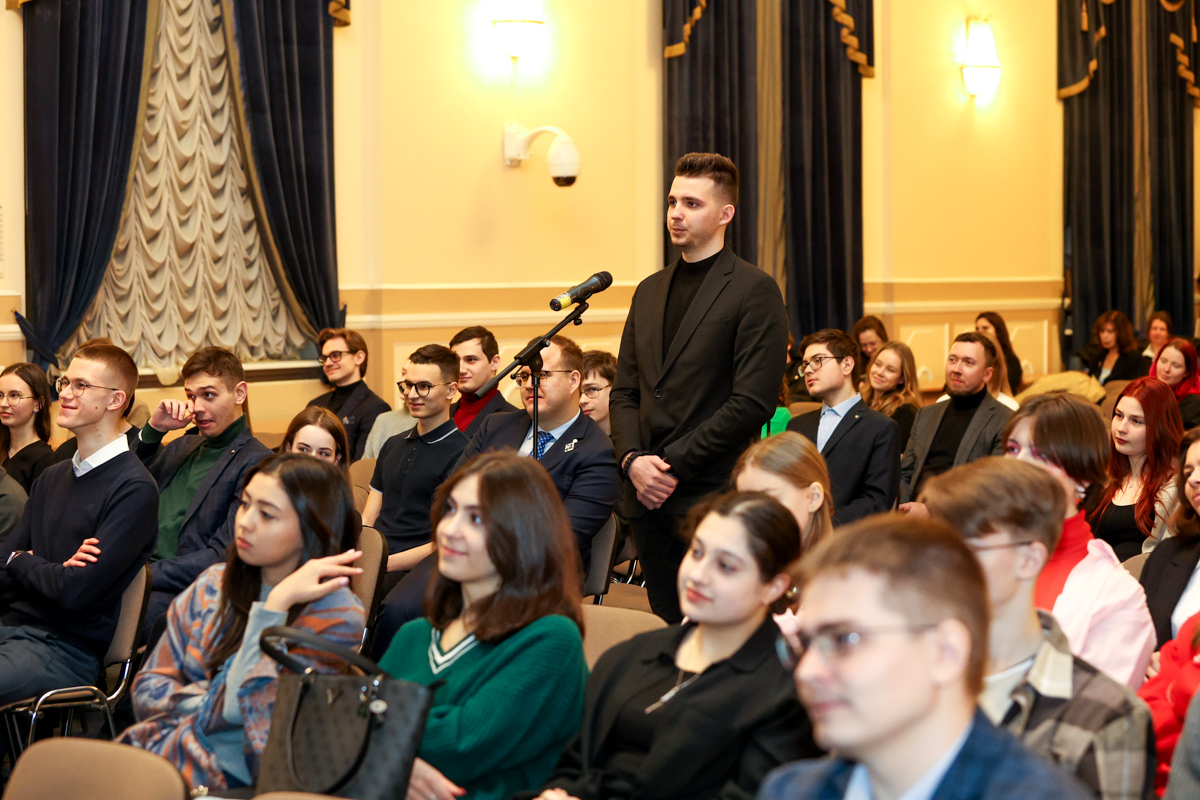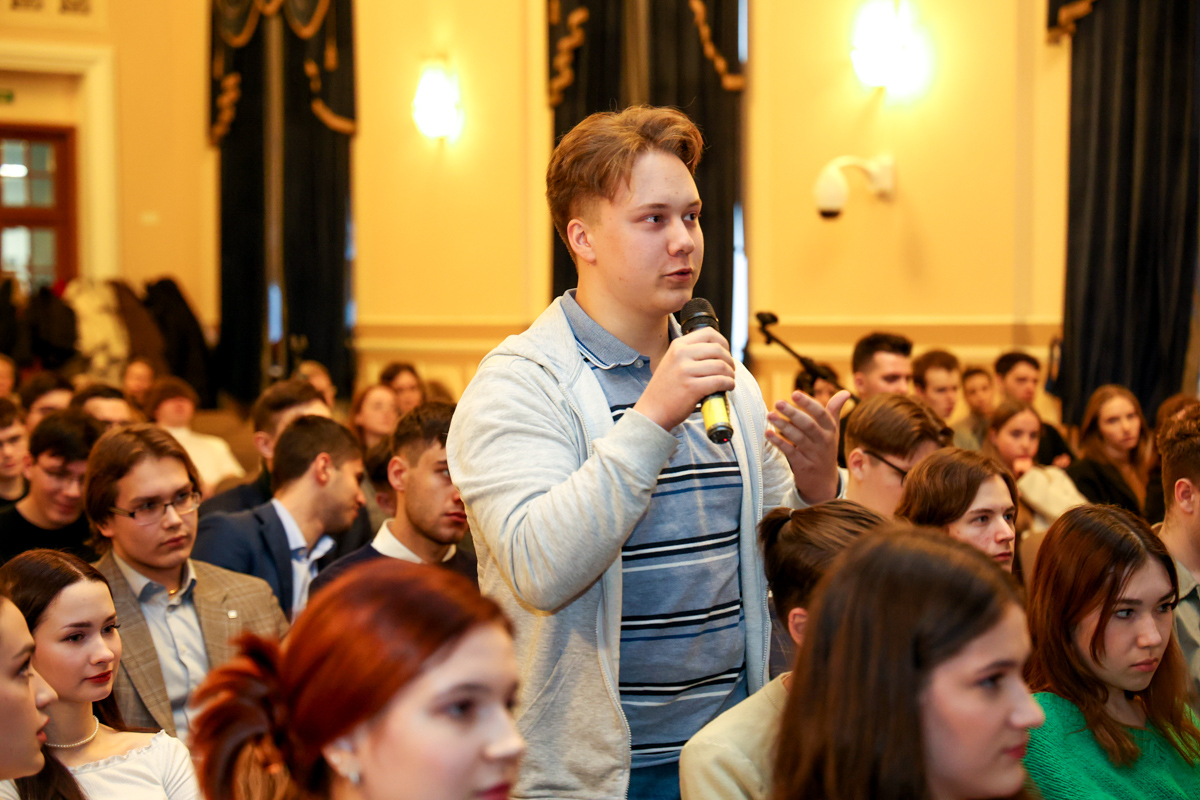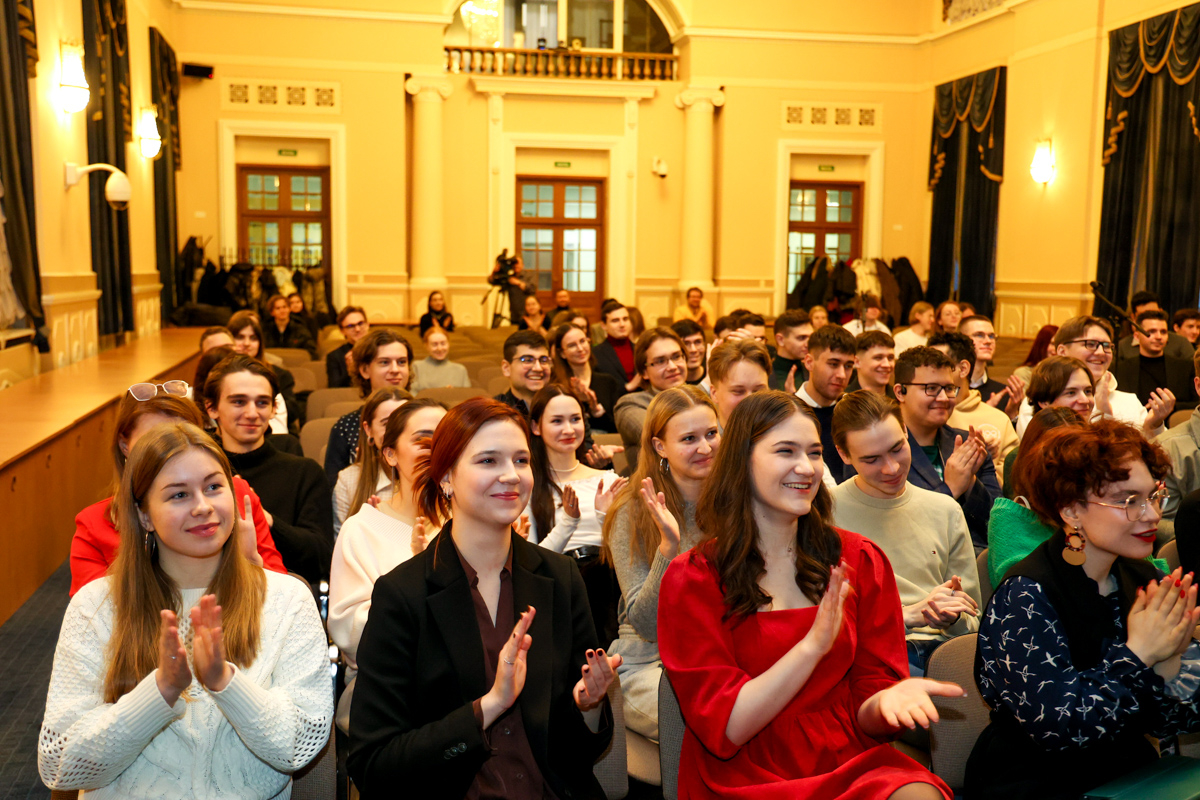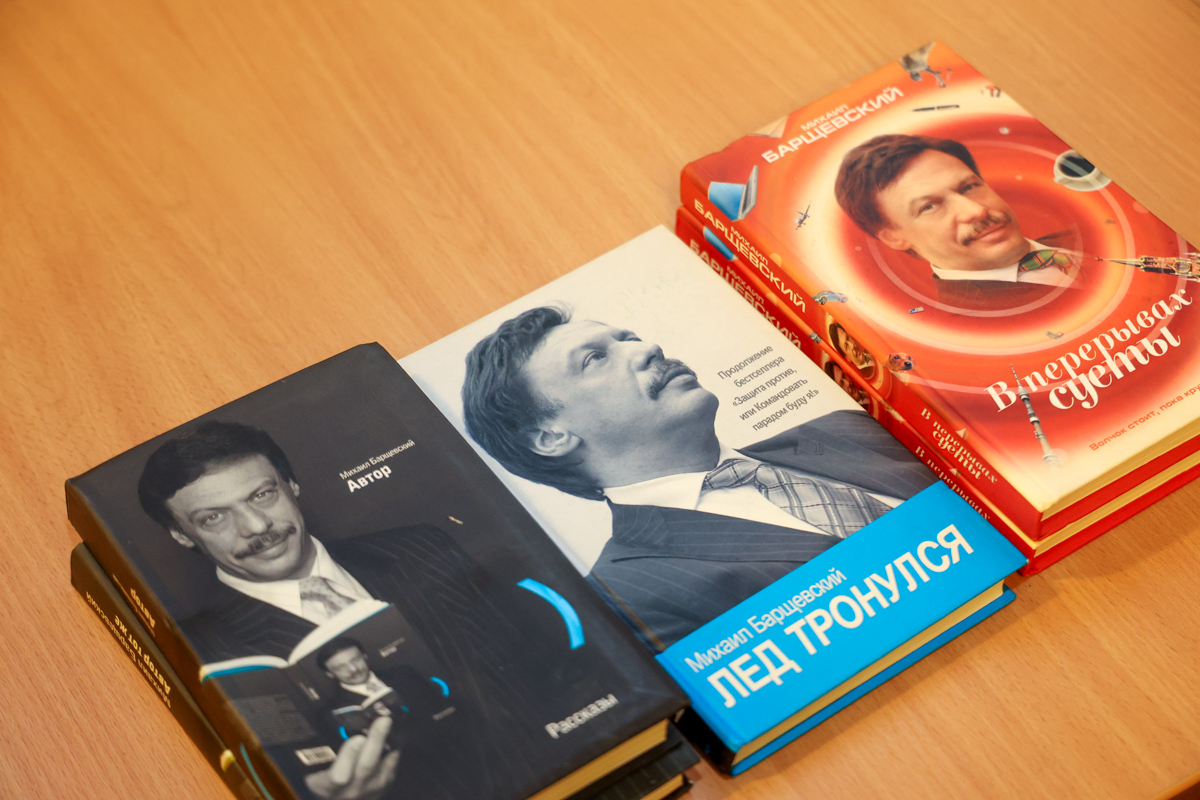Mikhail Barshchevsky: "No matter what field of law you start practicing, you should conduct academic research"
Mikhail Barshchevsky, Plenipotentiary Representative of the Russian Government to the Constitutional Court and the Supreme Court of the Russian Federation, told the students of St Petersburg University about: whether the country needs so many law schools; whether being a media personality helps in career development; and why he used to go to work with an alarm clock in his briefcase when he was a student.
Mikhail Barshchevsky is a successful lawyer, scholar and teacher. He is the author of more than 100 publications and books on legal topics. He is widely known as an expert and keeper of the traditions of the club "What? Where? When?" (an intellectual game show well known in Russian-language media and other CIS states since the mid-1970s).
In the early 2000s, Mikhail Barshchevsky stopped lawyering and switched over to the civil service. At present, Mr Barshchevsky is the Plenipotentiary Representative of the Government of the Russian Federation to the Constitutional Court of the Russian Federation and the Supreme Court of the Russian Federation, a writer and director of theatre productions.
Mikhail Barshchevsky started out as a legal adviser at a margarine factory near Moscow. "When I was a first-year student, I worked at one job. When I was a second-year student, I already had two jobs: at the factory and at a food processing plant. I slept four to five hours a day. I travelled by suburban train and slept, and I had an alarm clock in my briefcase. At the same time, I was an A student and was going to receive a degree with honours," said Mikhail Barshchevsky.
"No matter in which field of law you become a practitioner, it is necessary to conduct academic research," Mikhail Barshchevsky noted the importance for students to gain practical experience as soon as possible and definitely try their hand at science.
At the same time, according to the lawyer, even an experienced specialist who has been working in law for many years should not forget to study the latest scientific research and law enforcement practice.
It is not necessary to defend a candidate’s dissertation, but a lawyer who does not read daily legal journals and publications is like a doctor who does not read the latest medical publications in The Lancet, which is one of the most renowned, oldest and highly respected general medicine journals.
Mikhail Barshchevsky, Plenipotentiary Representative of the Government of the Russian Federation to the Constitutional Court of the Russian Federation and the Supreme Court of the Russian Federation
Answering the question whether it is possible to change the vector of career development, for example, to work in investigative bodies, then in court, then in consulting, and only then come to the Bar, Mikhail Barshchevsky emphasised that representatives of all these specialities have different mentality. "You have to be born a lawyer," he remarked.
At the same time, Mikhail Barshchevsky said that there have been times in his career when he has considered leaving the legal profession: "When you go to court, you are one hundred per cent sure of the correctness of your legal position and the innocence of your client. There are times when the judge makes a different judgement, and then you want to leave the profession. However, I always had the passion to prove my position, and I persevered: I made it to the Supreme Court and overturned those decisions."
According to Mikhail Barshchevsky, now the work of a lawyer is only getting more complicated, so to be a lawyer, you have to be quite thick-skinned about the legal practice, but not become thick-skinned about the client: "Our life is a pendulum. A lot depends on lawyers. The profession is tough, but very rewarding. When you see the eyes of a client who did not expect to win, who has been wronged all his life, but thanks to you he has been vindicated, it is worth a lot."
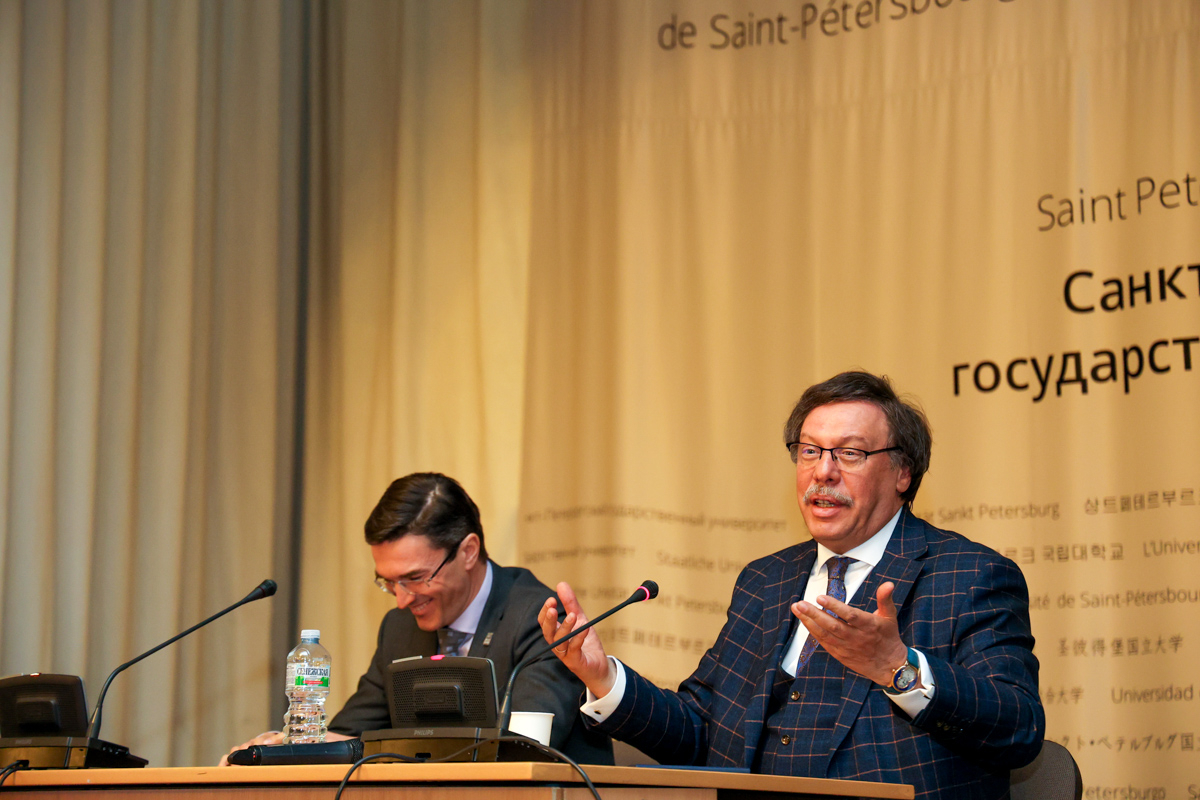
However, according to Mikhail Barshchevsky, the legal profession today is in crisis. One of the reasons for this is the large number of lawyers who have not received a decent education: "The quality of legal education, with the exception of a few universities, is very low. It is more like a queue for a degree. In the USSR, there were 52 universities that trained lawyers. At present, more than 600 universities in Russia confer law degrees. The quality of legal education suffers, which means that society’s reaction to such lawyers suffers, i.e. there is a lack of trust and confidence in the judicature."
According to Mikhail Barshchevsky, in addition to reforming the legal education system, it is necessary to improve the Russian judicial system. One of the main challenges of the courts today is the huge workload of judges. "This is a conveyor belt. How many court cases do you think are examined in the Russian Federation during a year? 34 million cases! There are 30,000 judges in Russia. That means 1,000 cases for each judge," the speaker noted.
As a solution to this issue, Mikhail Barshchevsky proposed the establishment of an institute of so-called investigative, procedural judges — those who would consider the issues of authorising a search or arrest. It is also important for the system to have a genuine adversarial process, so that the lawyer has the right to question witnesses and to call experts. According to the lawyer, it is necessary to significantly increase state fees in order to limit the flow of court cases and to resolve disputes in the pre-trial order, including in mediation processes. Another proposal is to extend jury trials to civil cases.
The Mediation Centre at St Petersburg University has been operating successfully for more than five years. It combines the efforts and potential of representatives of science and practice in the field of dispute and conflict resolution accumulated over several decades of work. The Centre organises mediation procedures and consultations on request from citizens and organisations.
Talking about his experience of taking part in the TV show "What? Where? When?", Mikhail Barshchevsky noted that being in the media did not help his career as a lawyer, on the contrary: "If you appear on the screen, it means you are a TV person. I started to get discounts in the market on a regular basis, but from a legal point of view it did not improve my image. I realised that I should not become a TV commentator."
Students of St Petersburg University were interested in Mikhail Barshchevsky’s opinion on whether artificial intelligence will soon replace lawyers in court cases. "Artificial intelligence will never manage humanity as we will not create such a thing. It cannot develop itself. Artificial intelligence can educate itself, but it will never surpass a human being," Mikhail Barshchevsky replied.


